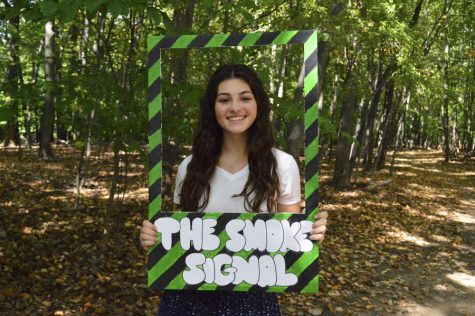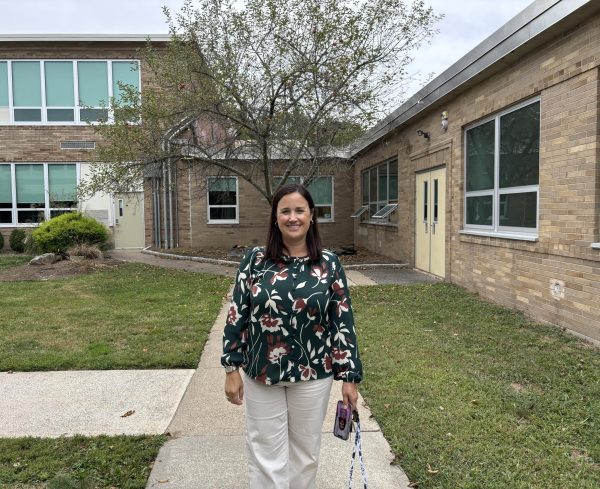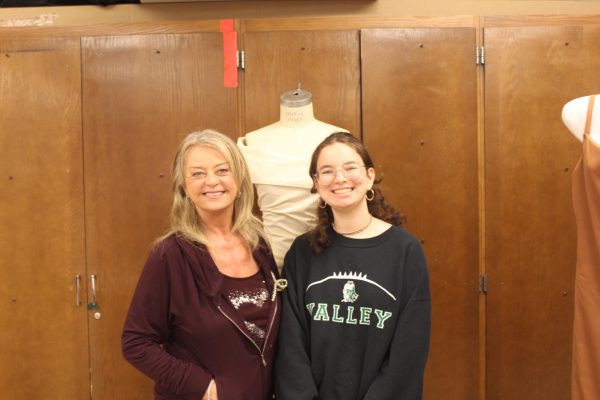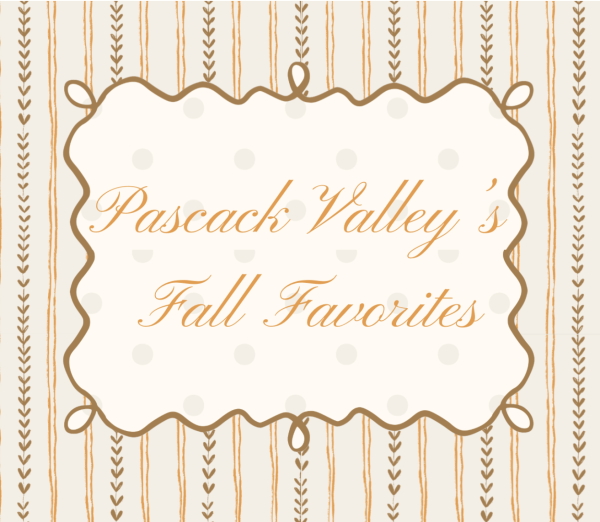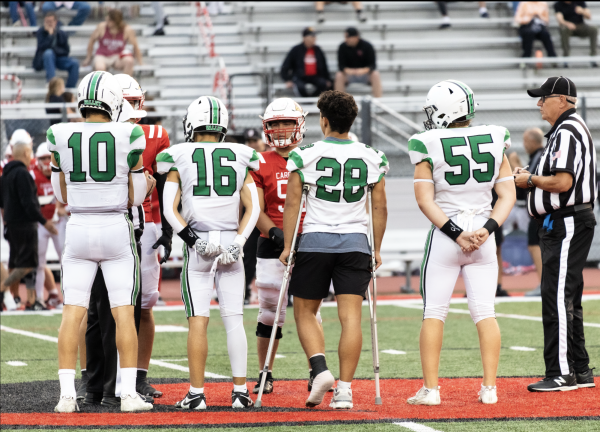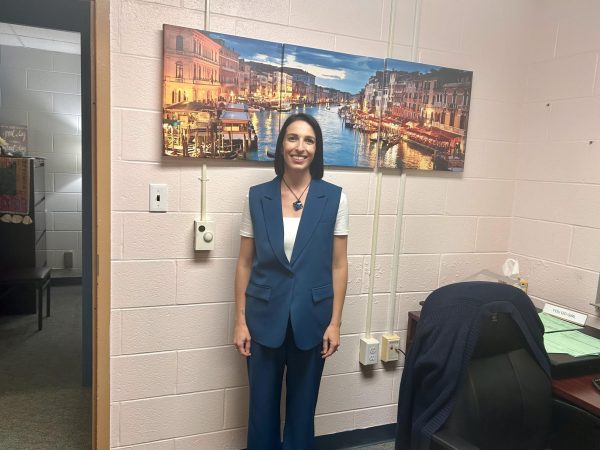‘Open’ing up an important conversation
One year later, the Human Rights League continues the dialogue
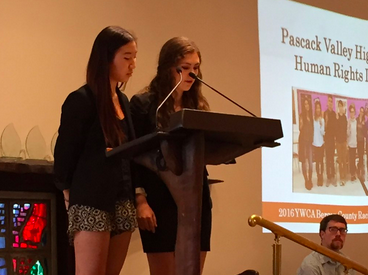
Seniors Zoe Ziegler and Grace Cho speak at the YWCA award ceremony where the PV HRL was awarded the YWCA of Bergen County’s annual Racial Justice Award.
(Editor’s Note: Today marks the one-year anniversary of the Pascack Valley Human Rights League’s open letter to the school regarding white supremacy amongst PV students. This letter caused mass conversation and debate across many in the community, and led to the creation of #PeaceinPV, a hashtag that PV students used to share their opinions on Twitter. Now, one year later, the Human Rights League continues to remain active on social issues in the PV community.)
What was once an informal talk turned into a letter and eventually became an award. Laura Friel, senior and member of the Human Rights League, recounts when the #PeaceinPV controversy arose.
“My friend and I were talking, it was just a simple walk in the park,” Friel said.
Last year, after noticing tweets promoting white supremacy while talking with senior Jasmine Abraham at a rape awareness walk, Friel brought the tweets to the attention of Diana McKenna, adviser of the club. There was talk of publishing a letter; this was the action that eventually led to the in-school assemblies, to the school email temporarily being blocked, to the “Peace in PV” twitter phenomenon, and most recently, to the HRL winning the YWCA of Bergen County’s annual Racial Justice Award on April 22.
The YWCA is an organization dedicated to “eliminating racism, empowering women, and promoting peace, justice, freedom, and dignity for all.” Every year they present an award to a select few individuals or groups that, according to the YWCA, “demonstrated commitment to eliminating racism and promoting racial equality in Bergen County.”
The Human Rights League is a group of students who, according to their mission statement, “promote the respect, dignity, and freedom of all people, and to raise awareness about human rights issues in our school community and world.”
This year they focused on the Syrian Refugee crisis, which is a global issue, while also participating in the community R.A.V.E. walk for date rape and violence awareness.
However, two issues in particular have gained a lot of attention from the outside community: the white supremacy controversy of last year and the Indian mascot. It was their work with these topics that lead the YWCA to honor the Human Rights League with the award.
A year ago, Pascack Valley became the center of controversy after a group of students allegedly promoted “white power” and cultivated a culture of racism and intolerance in the school.
The Human Rights League responded by publishing a letter in The Smoke Signal titled “Open letter to our community from the Human Rights League.” The letter stated the racism problems they believe existed within the school.
There was both positive and negative feedback. Some students believed that the situation was being blown out of proportion, while others said it was the right step to make for a positive change. The article even received attention from outside news stations.
McKenna, the adviser of the Human Rights League, explained that it was a stressful time.
“Anytime you reveal and unearth horrible things like racism it’s going to cause controversy,” said McKenna. “No one who’s ever worked for human rights has done so without some sort of backlash or repercussions.”
Since the publishing of the letter, McKenna does believe that there has been a positive change. She personally has not heard of any more examples of racism within PV.
Another issue that the Human Rights League has been working with is the eradication of the Indian head as the school mascot. Their main goal is to change the mascot completely, but since the Board of Education has stated that the Indian head is staying, the Human Rights League wants to work towards better representing the Indian.
By this, McKenna means that as a school we should take the steps to learn who the Pascack Indians were and what is the most respectful way to represent them.
Still, McKenna said, “You can’t appropriate a culture and an image.”
Zoe Ziegler, a senior at Pascack Valley and Co-president of the club, says that it is frustrating that people are pushing for the mascot to stay. The club has addressed the Board of Education numerous times regarding this issue.
It was the Human Rights League’s work with the white supremacy controversy and the Indian head that caught the attention of the YWCA. They noticed the article and followed and acknowledged the press they received. They decided to present the League with the Racial Justice Award for their work.
According to Ziegler, this award has gained them more recognition within the community and has opened more opportunities for collaboration with other groups with similar goals in the future.
The Human Rights League is going to continue to stand up for the issues they believe in, including controversial ones such as the white supremacy issue and the Indian head.
“In the end it’s all for good,” McKenna said.


